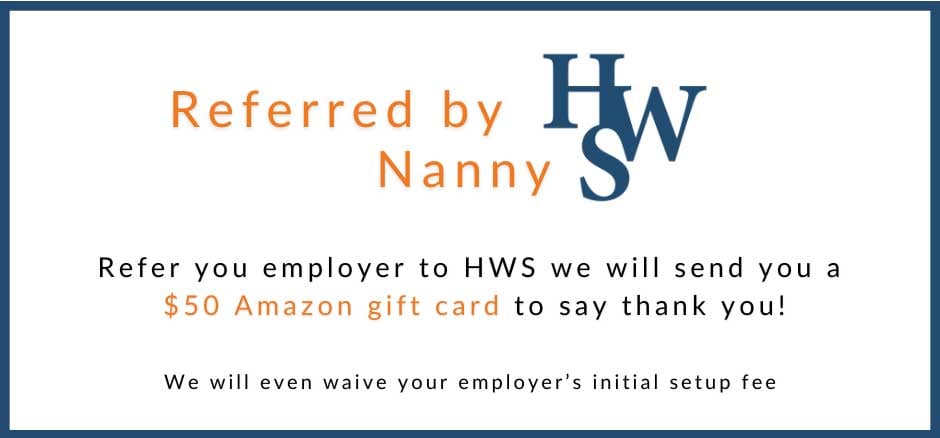
As you embark on your search for a new nanny position, you're likely evaluating key aspects of potential jobs, including salary, location, and benefits. These are crucial considerations before applying, but once the interview, and finally the offer time comes, it's equally important to understand the distinction between gross and net pay, and what benefits can be received tax-free. Grasping these concepts will aid in budgeting and planning for your financial needs, helping you to identify the most suitable position for you. Here are some essential points to keep in mind:
Your Employment Status
As a nanny, the Fair Labor Standards Act(FLSA) classifies you as an employee rather than an independent contractor. This means the family should withhold your share of payroll taxes from your pay, as well as pay their share. Misclassification as an independent contract is not only illegal, it means you would have to pay all of the payroll taxes yourself! It's also important to be aware that accepting payment "under the table" poses risks to both you and your employer, including potential legal repercussions and lack of protection in certain situations, such as filing for unemployment benefits.
Understanding Gross vs. Net Pay
Gross wages are your earnings before any taxes are deducted, whereas net pay is the amount you take home after deductions. Employers typically offer salaries in terms of gross wages. Your actual take-home pay will be determined once you complete necessary tax documentation, like your federal W-4 form, and account for withholdings such as federal income tax, Medicare tax, and social security. Some locations also have local withholdings to consider.
Tax-Advantaged Benefits
There are opportunities to optimize your compensation package with tax-advantaged benefits. For instance, part of your compensation could cover health insurance premiums, cell phone bills, or public transportation costs using pre-tax dollars. If you're pursuing further education, tuition reimbursement may also be pre-tax. These benefits not only save money for both you and your employer but also allow for a more targeted compensation arrangement that aligns with your needs and the family's budget.
Paystub Details
Once employed, stay informed by keeping an eye out for unintentional errors. Ensure your pay stubs detail the following information for clarity and record-keeping purposes: date of wage payment, pay period dates, gross and net wages, hours worked, deductions, and any additional payments or bonuses. Understanding your pay stub is crucial for financial management and ensuring your compensation aligns with your expectations and agreements. It also prevents surprises when your W-2 arrives and it is time to file your taxes.

Need a sidekick?
If you find the payroll and compensation aspects overwhelming, our payroll specialists are here to help. We provide complimentary compensation consultations for you and your prospective employer. Furthermore, should you refer your new family to our payroll services, we'll express our gratitude by sending you a $50 Amazon gift card!
Taking the time to understand these elements before your interviews can empower you to negotiate a compensation package that meets your financial objectives while remaining within the family's budget.
